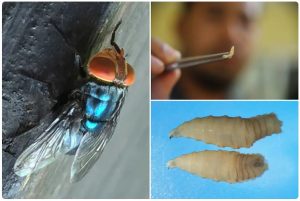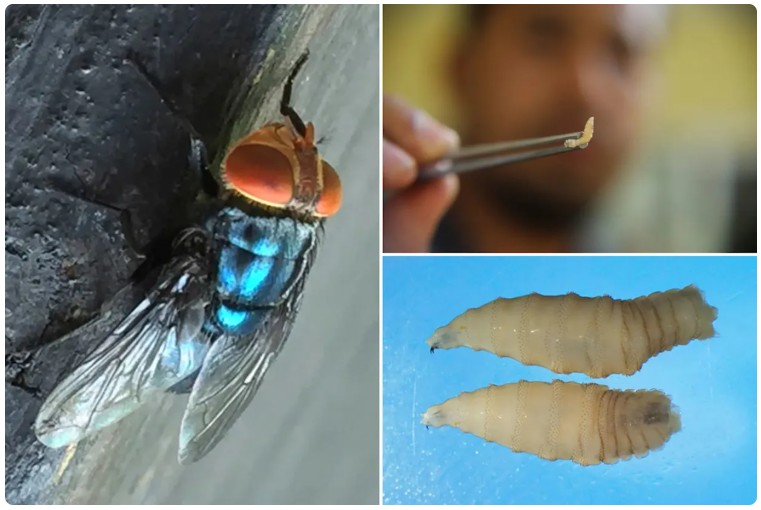
WASHINGTON, D.C. – According to the state veterinarian in South Dakota, officials seeking information about a reported case of New World screwworm (NWSW) found in a human in the U.S., have been frustrated with a lack of answers. And at least one livestock organization is calling for an investigation into the lack of transparency and what is being characterized as ‘selective sharing’ of information within the beef industry
The discovery of the flesh-eating parasite New World screwworm in a U.S. human patient has rattled cattle markets due to the parasite’s devastating potential for livestock. While government officials say the risk to humans is low and no animal infestations have been confirmed in the U.S., the news drove down cattle prices and fueled volatility in an already tight market supply situation.
On August 25, 2025, officials confirmed the first U.S. human case of New World screwworm in a Maryland resident who had recently traveled from El Salvador. An earlier report placed the discovery in a person in Maryland who had traveled to the United States from Guatemala.
According to a Reuters report, the differing accounts from the U.S. government and industry sources on the human case are likely to further rattle an industry of cattle ranchers, beef producers and livestock traders already on high alert for potential U.S. infestations.
The primary concern for agricultural markets is the potential for the parasite to spread to livestock. New World screwworm was eradicated from the U.S. in the 1960’s, but a reestablishment could cause billions of dollars in losses.
Reuters reported an executive of the industry group Beef Alliance sent emails last week to about two dozen people in the livestock and beef sectors, informing them that the Center for Disease Control (CDC) had confirmed a human case of screwworm in Maryland in a person who had traveled to the U.S. from Guatemala, according to a source, who asked not to be identified, and who shared the contents of the emails with Reuters.
South Dakota State Veterinarian Beth Thompson told Reuters on Sunday that she was notified of a human case in Maryland within the last week by a person with direct knowledge of it. CDC deferred questions to Maryland on a call with state animal health officials, Thompson said. “We found out via other routes and then had to go to CDC to tell us what was going on,” she said. “They weren’t forthcoming at all. They turned it back over to the state to confirm anything that had happened or what had been found in this traveler.”
The Maryland Health Department said in a statement Monday that the affected resident has recovered “from the infection, and the investigation confirmed there is no indication of transmission to any other individuals or animals.”
In response to this latest news, R-CALF USA CEO Bill Bullard said, “If a human case of New World Screwworm was confirmed on or about Aug. 20, and if that fact was secretly disseminated to only a select group of industry insiders, but not simultaneously shared with all organizations representing independent livestock producers, or even with state veterinarians instrumental in disease and pest surveillance, then we ask for a full investigation of this incident.
“And the establishment of a New World Screwworm task force comprised of representatives of each sector of America’s livestock industries to ensure future transparency and the proper allocation of resources to protect America from this devastating pest.”
He continued, “Without transparency and symmetrical information dissemination to all industry participants – including to producers whose livelihoods could be severely impacted by not receiving information selectively provided to others – there can be no trust between industry participants and the government.”
The parasite has been spreading northward through Central America. Recent screwworm infestations have been detected in Mexico as close as 370 miles from the U.S. border. It was initially detected in Mexico in 2024 and 2025. This led the USDA to halt cattle imports from Mexico in November 2024, May 2025, and July 2025.


